
Zoos house several tiger species, including Bengal, Siberian, Sumatran, and Malayan tigers. Zoo tigers primarily eat a diet of raw meat, which can include beef, chicken, rabbit, and sometimes horse meat. Their diet is supplemented with vitamins and minerals to ensure balanced nutrition.
Here are facts of Tiger in the zoo –
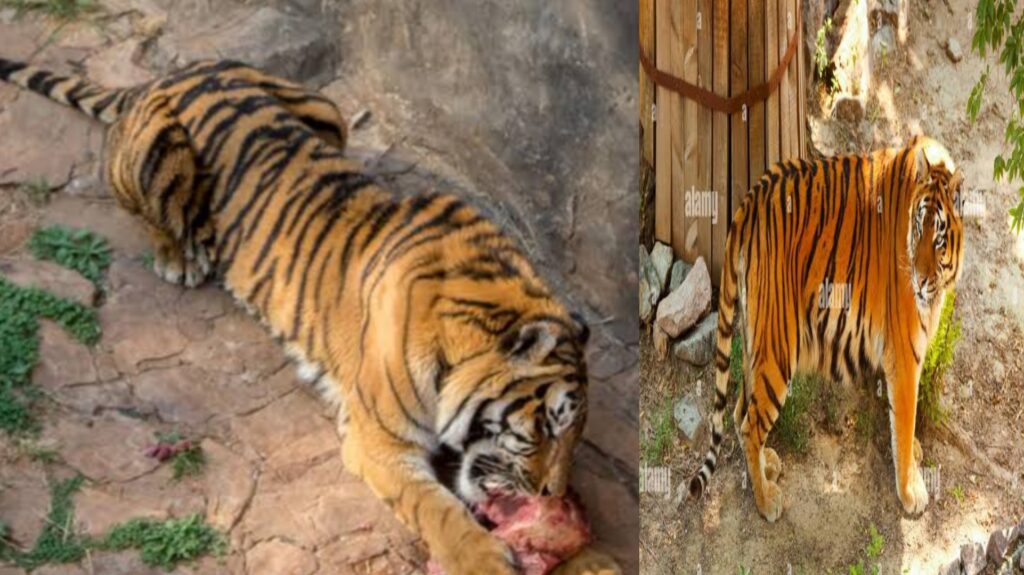
🐯 Zoo provide enrichment like hidden food, puzzle feeders, and objects to encourage natural behaviors and mental stimulation.

🐯 Tigers in zoos generally live longer than in the wild, often reaching 20-25 years compared to 10-15 years in the wild.
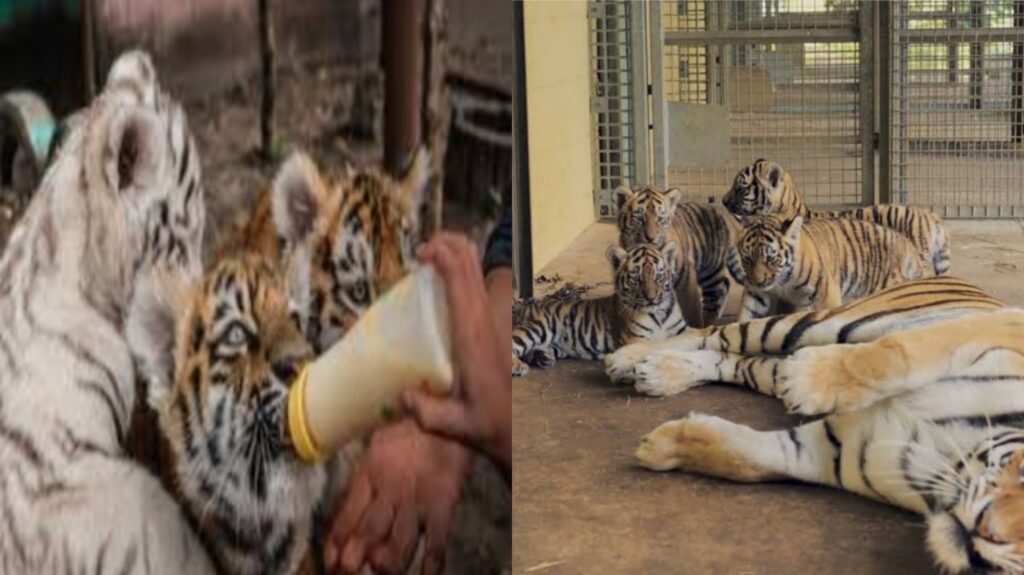
🐯Tigercubs feed on their mother’s milk transition to meat. Tigercubs grow rapidly, doubling their birth weight in the first week and continuing to grow at a fast.

🐯Tigercubs begin weaning at around 8 weeks old and are fully weaned by 6 months, tigers retain their hunting instincts, which are stimulated through environmental enrichment.

🐯Adult tigers in zoos are typically fed 5-6 times a week, with fasting days to mimic their natural hunting patterns. An adult tiger consumes around 10-15 pound of meat per feeding.

🐯 Tigers also need a constant supply of fresh water, which is essential for their digestion and overall health, Feeding often occurs in separate enclosures to allow keepers to monitor intake and reduce aggression.
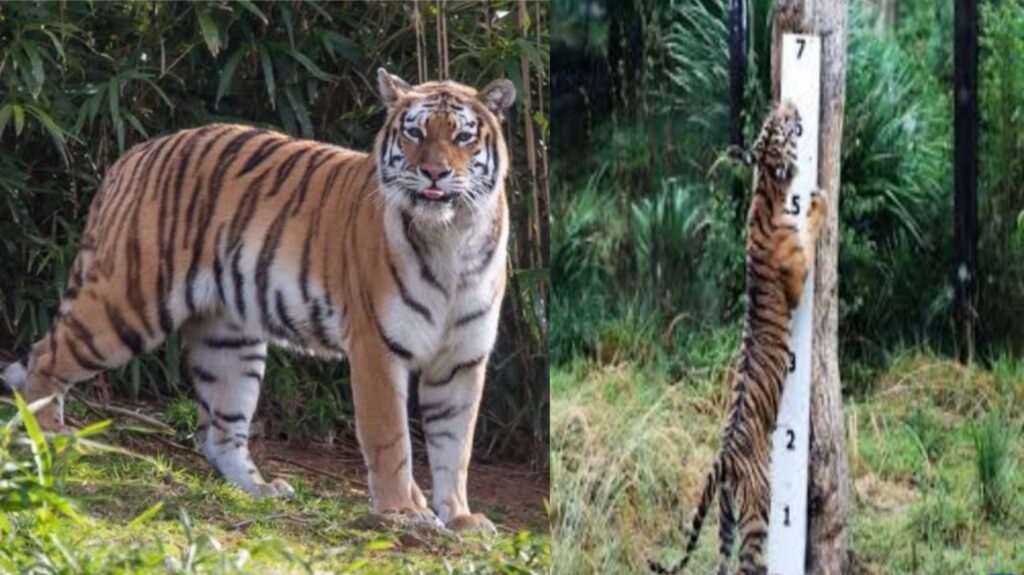
🐯 Tigers are trained for voluntary medical procedures, which helps in monitoring their health and diet. Zoos regularly weigh and measure their tigers to ensure they are growing properly.

🐯 Proper diet helps prevent diseases like feline infectious peritonitis and metabolic bone disease. The meat provided is often sourced from specially raised livestock to ensure quality and safety.
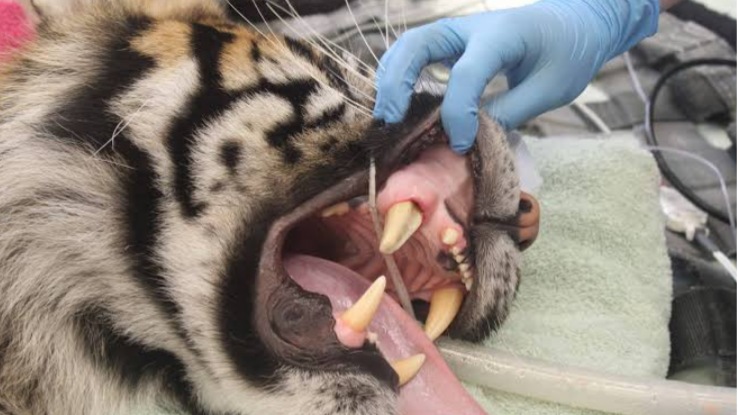
🐯Diets may be adjusted seasonally to accommodate changes in metabolism and behavior. Bones are included in their diet to help maintain dental health.
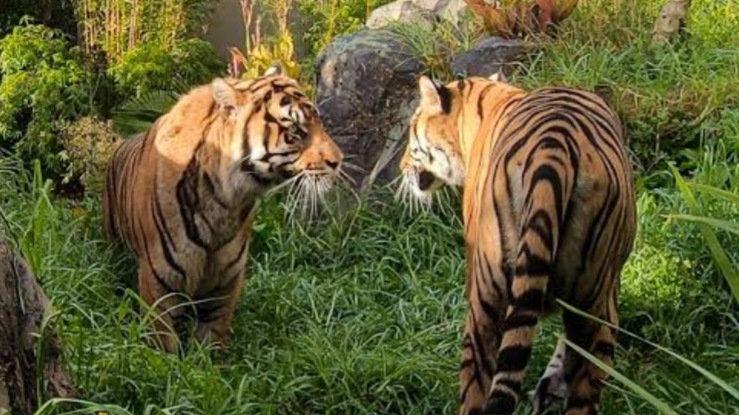
🐯Zoos participate in breeding programs to help conserve tiger populations, with careful attention to diet for reproductive health. Caloric intake is tailored to the tiger’s age, activity level, and health status.
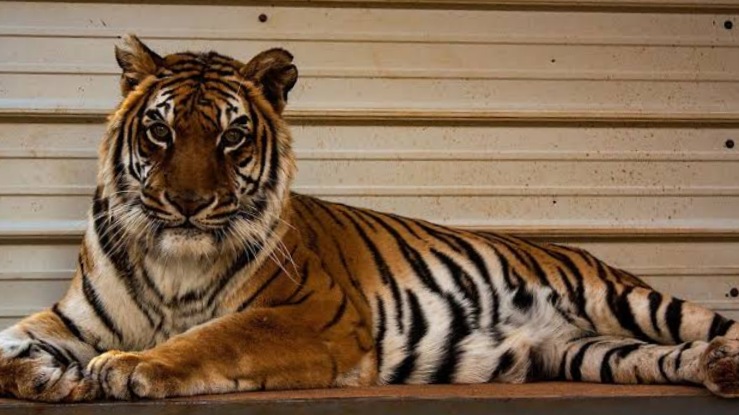
🐯Older tigers may receive specially formulated diets to accommodate aging digestive systems and health issues.
🐯Zookeepers closely observe eating habits to detect any changes that might indicate health issues. Regular veterinary check-ups ensure dietary needs are being met and adjust diets as necessary.
🐯 Some zoos feed tigers in a group setting to promote social behaviors. Meat variety is important to provide a balanced diet and prevent dietary boredom.
🐯Zoos aim to replicate as closely as possible the diet and lifestyle tigers would have in the wild to support conservation efforts.